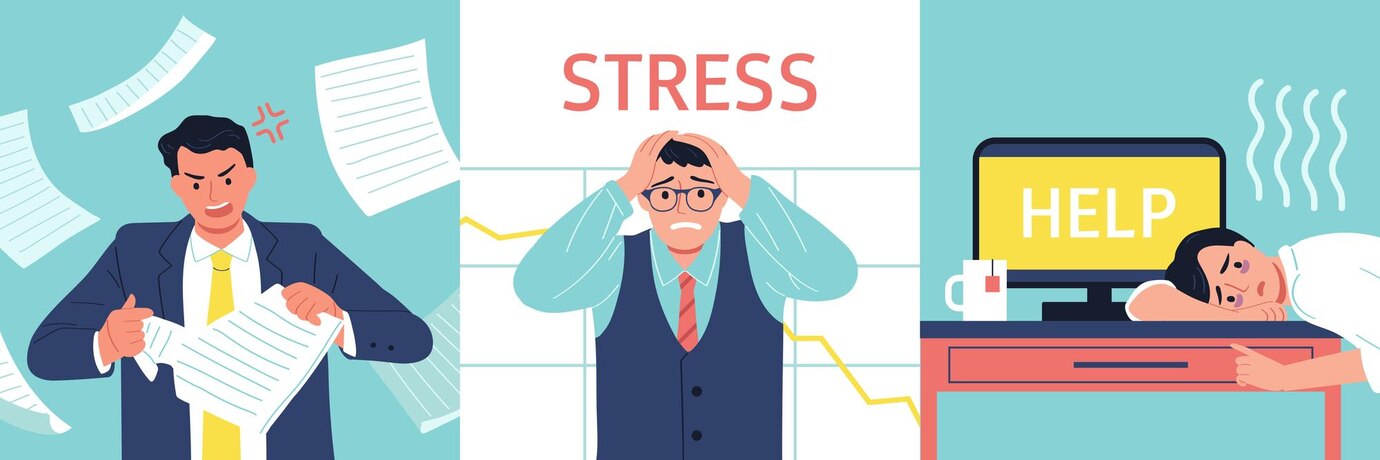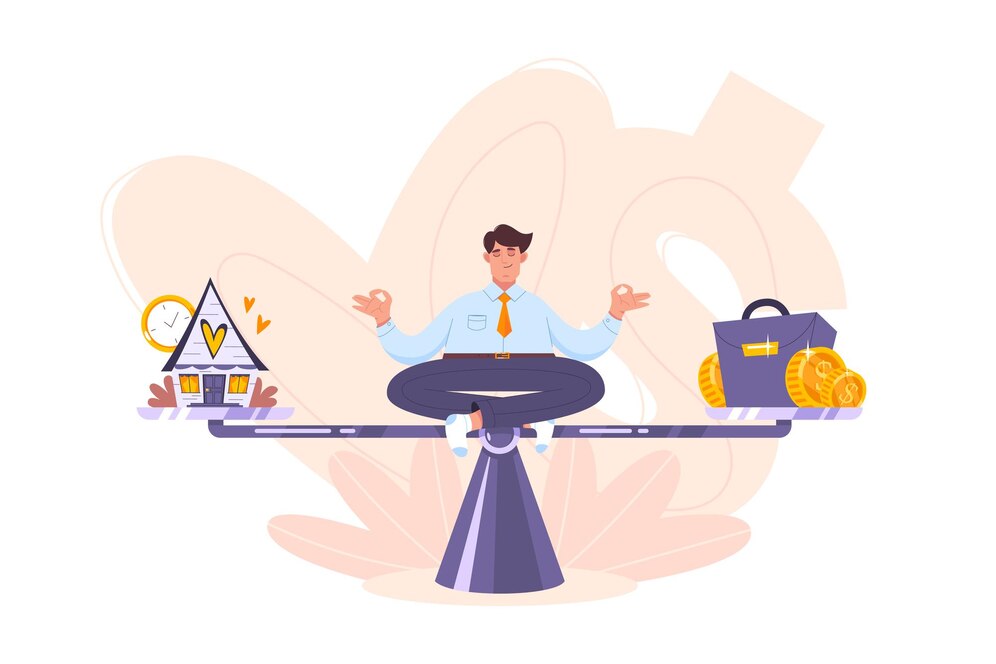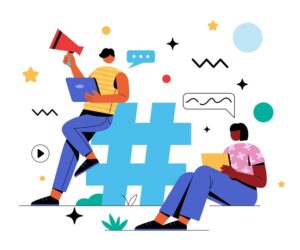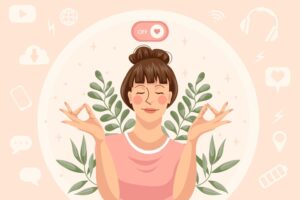- The Dawn of Hyper-Personalized Wellness
- The Science Behind AI and Wearables: Your Body’s Digital Mirror
- Sleep Optimization: From Restless Nights to Precision Zzz’s
- Stress Management: AI as Your 24/7 Mental Health Ally
- Nutrition and Fitness: Your AI Personal Trainer
- Neuro-Specific Wellness: Tailoring Tech to Your Brain
- Ethical Considerations: Balancing Innovation and Privacy
- The Future of AI Self-Care: What’s Next?
- Final Recommendations: Top AI Wellness Tools of 2025
- Embrace Your Unique Wellness Blueprint
The Dawn of Hyper-Personalized Wellness
Imagine waking up to a notification that says: “Your stress levels spiked at 3 PM yesterday. Let’s adjust your afternoon schedule and add a 10-minute mindfulness session today.” This isn’t science fiction—it’s the reality of AI-powered self-care in 2025. By merging artificial intelligence with wearable technology and biometric data, wellness routines are no longer generic. They’re tailored to your body’s unique rhythms, preferences, and needs.
In this article, we’ll explore how AI is revolutionizing self-care, from sleep optimization to stress management, and why platforms like Fitbit, WHOOP, and Oura are leading the charge. You’ll discover actionable insights, case studies, and expert-backed recommendations to transform your wellness journey.
The Science Behind AI and Wearables: Your Body’s Digital Mirror
How AI Decodes Your Biometric Data
AI-powered wearables act as 24/7 health detectives. Devices like the Fitbit Sense 3 and Oura Ring Gen4 track over 20 biomarkers, including:
- Sleep stages (light, deep, REM)
- Heart rate variability (HRV) for stress assessment
- Skin temperature fluctuations
- Blood oxygen levels (SpO2)
- Activity intensity and recovery metrics
These metrics are fed into machine learning algorithms that identify patterns. For example, if your HRV drops consistently on Mondays, AI might correlate it with work-related stress and suggest proactive interventions.
Sleep Optimization: From Restless Nights to Precision Zzz’s
Case Study: How Fitbit’s Sleep Coach Reduces Insomnia
Fitbit’s AI Sleep Coach analyzes sleep cycles, room temperature, and even caffeine intake timing to generate personalized recommendations. In a 2024 clinical trial, users who followed its guidance experienced a 32% improvement in sleep efficiency and a 27% reduction in nighttime awakenings.
Key Features of AI-Driven Sleep Tech:
- Circadian Rhythm Alignment: Devices like the Ultrahuman Ring adjust bedtime reminders based on your chronotype (night owl vs. early bird).
- Environment Optimization: The Withings Sleep Analyzer syncs with smart home systems to dim lights and lower room temperature 30 minutes before bed.
- Dietary Insights: Apps like Nutrisense use glucose monitoring to suggest sleep-friendly snacks that avoid blood sugar spikes.

Stress Management: AI as Your 24/7 Mental Health Ally
The Rise of Real-Time Stress Detection
Smartwatches now leverage HRV biofeedback to detect stress surges. The Apple Watch Series 9, for instance, alerts users when stress levels exceed their baseline and offers guided breathing exercises. A 2025 Stanford study found that employees using these alerts reduced burnout rates by 41%.
Top Apps for AI-Driven Stress Relief:
- Welltory: Analyzes HRV data from wearables to recommend meditation, yoga, or even a walk based on your stress patterns.
- Spire Health Tag: A wearable patch that monitors breathing patterns and sends haptic feedback to calm anxiety attacks.
- Headspace x Fitbit Collaboration: Combines sleep data with mindfulness sessions tailored to your fatigue levels.
Nutrition and Fitness: Your AI Personal Trainer
How WHOOP Coach Builds Smarter Workouts
Powered by OpenAI’s GPT-5, WHOOP Coach acts as a virtual fitness advisor. After analyzing your recovery score, sleep debt, and strain from previous workouts, it generates dynamic training plans. Marathon runners using WHOOP reported a 19% improvement in race times by avoiding overtraining.
AI Nutrition Platforms to Try in 2025:
- Lumen: Measures metabolism via breath analysis and creates meal plans to optimize energy levels.
- MyFitnessPal AI: Syncs with glucose monitors to adjust carb intake based on real-time activity data.
- NEUROFIT: A neuroscience-backed app that recommends brain-boosting foods (e.g., omega-3s for focus) based on cognitive performance metrics.
Neuro-Specific Wellness: Tailoring Tech to Your Brain
Expert Insight: Dr. Loren Hogue on AI and Cognitive Health
“AI is unlocking neuroplasticity at scale. By analyzing EEG data from wearables like the Muse S Headband, we can prescribe personalized brain-training exercises for anxiety or ADHD. For instance, a 2024 trial showed a 45% reduction in ADHD symptoms with AI-curated neurofeedback sessions.”
Neuro-Tech Tools to Explore:
- Muse S: Guides meditation based on real-time brainwave activity.
- Neuralink’s MindSync: Still in beta, this brain-computer interface helps users with PTSD reframe traumatic memories through AI-generated visualizations.

Ethical Considerations: Balancing Innovation and Privacy
While AI offers unprecedented personalization, it raises critical questions:
- Data Security: A 2025 Gartner report revealed that 68% of users worry about health data breaches.
- Algorithmic Bias: MIT researchers found that some AI wellness apps underestimate calorie needs for women and older adults by up to 20%.
Tips for Safe AI Self-Care:
- Opt for devices with HIPAA-compliant encryption (e.g., Fitbit Wellness for corporate programs).
- Regularly audit app permissions and delete unused biometric data.
The Future of AI Self-Care: What’s Next?
- Predictive Disease Prevention: Wearables like the Apple Watch 10 are rumored to detect early signs of diabetes via non-invasive glucose monitoring.
- Emotion Recognition: Startups like Affectiva are testing AI that analyzes voice tone and facial expressions to recommend mood-boosting activities.
- AI-Powered Pharmacies: Companies like Hims & Hers use genetic data from wearables to customize supplement regimens.
Final Recommendations: Top AI Wellness Tools of 2025
| Category | Tool | Key Feature |
|---|---|---|
| Sleep | Oura Ring Gen4 | Scores sleep readiness via body temperature + HRV |
| Stress | Garmin Venu 4 | Offers on-wrist yoga flows based on stress levels |
| Fitness | WHOOP Coach | GPT-5-powered recovery optimization |
| Nutrition | Lumen Metabolism Tracker | Breath-based metabolic flexibility analysis |
| Mental Health | Muse S Headband | Real-time neurofeedback for meditation |
Embrace Your Unique Wellness Blueprint
AI-powered self-care isn’t about replacing human intuition—it’s about enhancing it. By leveraging hyper-personalized insights from wearables and apps, you can finally move beyond one-size-fits-all wellness fads. Whether you’re optimizing sleep, crushing fitness goals, or managing stress, remember: your data tells a story. Let AI help you write the next chapter.
Ready to start? Share your favorite AI wellness tool in the comments below!


